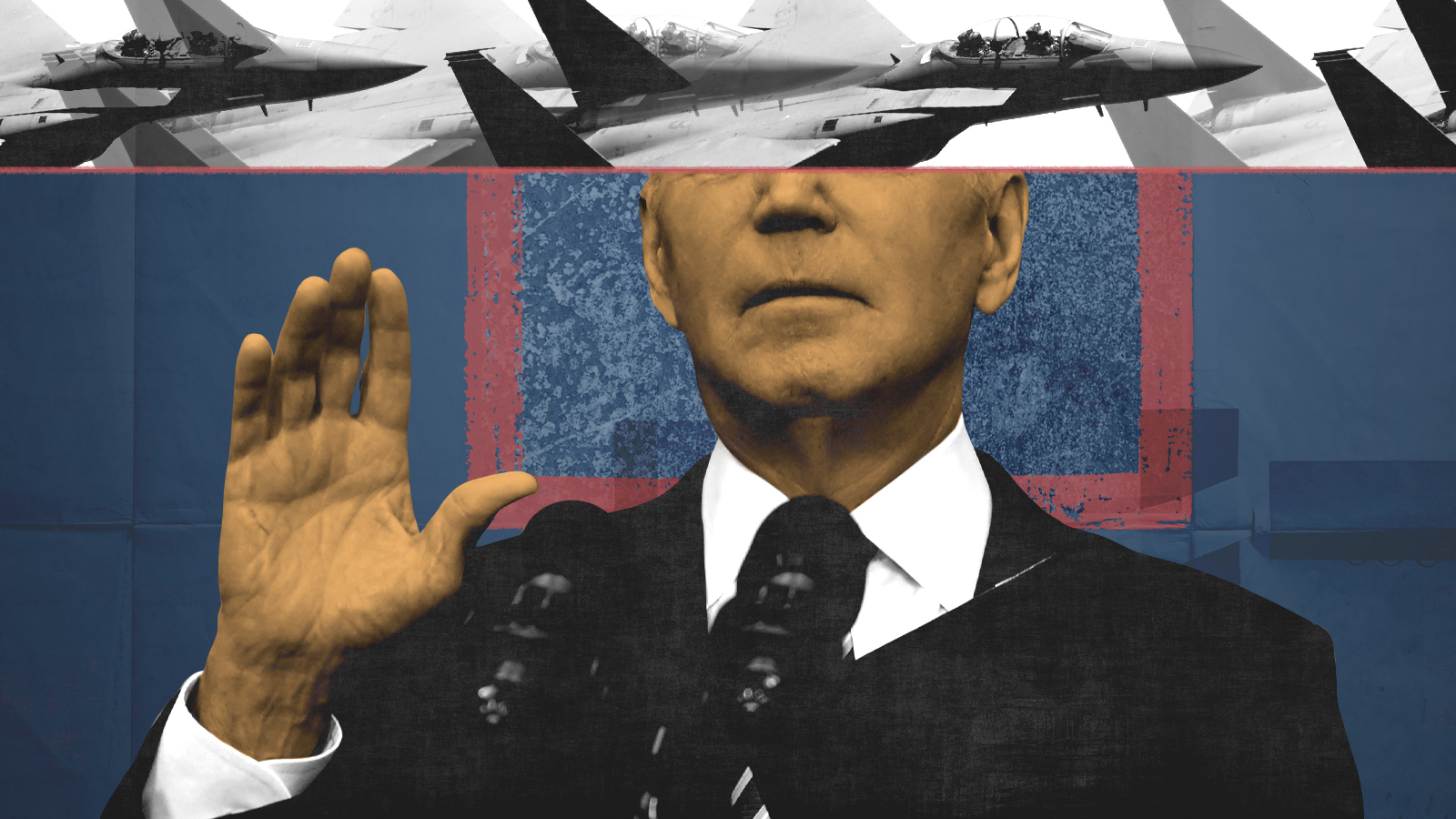A no-fly zone over Ukraine means war with Russia


A free daily email with the biggest news stories of the day – and the best features from TheWeek.com
You are now subscribed
Your newsletter sign-up was successful
If the past two weeks of war in Eastern Europe have shown us anything, it's that lots of Washington-based foreign-policy analysts and journalists love the idea of America imposing a no-fly zone over Ukraine. The first calls for declaring one came just a few days after Russia invaded the country. Most recently 27 foreign policy experts published an open letter in Politico making the case for what sounds like a more restrained ("limited") NFZ.
Limited or not, a NFZ over Ukraine would almost certainly mean war between the United States and Russia — an eventuality that just about everyone in our politics quite sensibly wants to avoid. That means imposing one is a terrible idea that people who should know better really ought to stop advocating.
No matter now limited, a NFZ requires a willingness to shoot down Russian planes that violate it — and a willingness to take the risk of our planes being shot down in the act of enforcement, both by Russian fighter jets and by ground-based anti-aircraft batteries. Even if both sides worked hard to call this air-to-air and surface-to-air combat something other than "war," an escalatory spiral would be highly likely to deliver us quite quickly to something that couldn't be described in any other way.
The Week
Escape your echo chamber. Get the facts behind the news, plus analysis from multiple perspectives.

Sign up for The Week's Free Newsletters
From our morning news briefing to a weekly Good News Newsletter, get the best of The Week delivered directly to your inbox.
From our morning news briefing to a weekly Good News Newsletter, get the best of The Week delivered directly to your inbox.
In a recent sharp essay, "The Ugly Truth About No-Fly Zones," author Damir Marusic discusses all of this. But he then goes further, to think through how a limited land war could emerge out of hostilities surrounding the enforcement of a NFZ — and how Russia could well prevail (or fight to a draw) in such a battle with NATO forces.
How so? By using tactical (smaller yield) nuclear weapons against our troops on the ground. The U.S. apparently has only 230 tactical nukes, while Russia has something on the order of 2,000 of them. Even assuming such a nightmarish scenario could be kept from escalating to the use of strategic nuclear weapons (including intercontinental ballistic missiles that can wipe out entire cities), it would be extremely bad, potentially leaving NATO forces outmatched and turning Ukraine (in Marusic's words) "into a radioactive wasteland."
Now, maybe NATO could still defeat a nuclear-armed Russian army using the "smart" conventional munitions the U.S. military has prioritized over tactical nukes. But that doesn't mean we should want to test the proposition.
America has vowed to defend NATO countries in the event of a Russian attack, but we have made no such promise to Ukraine. With hostilities already underway, we need to honor that commitment to restraint. It's supremely foolish to entertain doing otherwise.
A free daily email with the biggest news stories of the day – and the best features from TheWeek.com
Damon Linker is a senior correspondent at TheWeek.com. He is also a former contributing editor at The New Republic and the author of The Theocons and The Religious Test.
-
 5 calamitous cartoons about the Washington Post layoffs
5 calamitous cartoons about the Washington Post layoffsCartoons Artists take on a new chapter in journalism, democracy in darkness, and more
-
 Political cartoons for February 14
Political cartoons for February 14Cartoons Saturday's political cartoons include a Valentine's grift, Hillary on the hook, and more
-
 Tourangelle-style pork with prunes recipe
Tourangelle-style pork with prunes recipeThe Week Recommends This traditional, rustic dish is a French classic
-
 Big-time money squabbles: the conflict over California’s proposed billionaire tax
Big-time money squabbles: the conflict over California’s proposed billionaire taxTalking Points Californians worth more than $1.1 billion would pay a one-time 5% tax
-
 Did Alex Pretti’s killing open a GOP rift on guns?
Did Alex Pretti’s killing open a GOP rift on guns?Talking Points Second Amendment groups push back on the White House narrative
-
 Washington grapples with ICE’s growing footprint — and future
Washington grapples with ICE’s growing footprint — and futureTALKING POINTS The deadly provocations of federal officers in Minnesota have put ICE back in the national spotlight
-
 Trump’s Greenland ambitions push NATO to the edge
Trump’s Greenland ambitions push NATO to the edgeTalking Points The military alliance is facing its worst-ever crisis
-
 Why is Trump threatening defense firms?
Why is Trump threatening defense firms?Talking Points CEO pay and stock buybacks will be restricted
-
 The billionaires’ wealth tax: a catastrophe for California?
The billionaires’ wealth tax: a catastrophe for California?Talking Point Peter Thiel and Larry Page preparing to change state residency
-
 Trump considers giving Ukraine a security guarantee
Trump considers giving Ukraine a security guaranteeTalking Points Zelenskyy says it is a requirement for peace. Will Putin go along?
-
 Vance’s ‘next move will reveal whether the conservative movement can move past Trump’
Vance’s ‘next move will reveal whether the conservative movement can move past Trump’Instant Opinion Opinion, comment and editorials of the day
